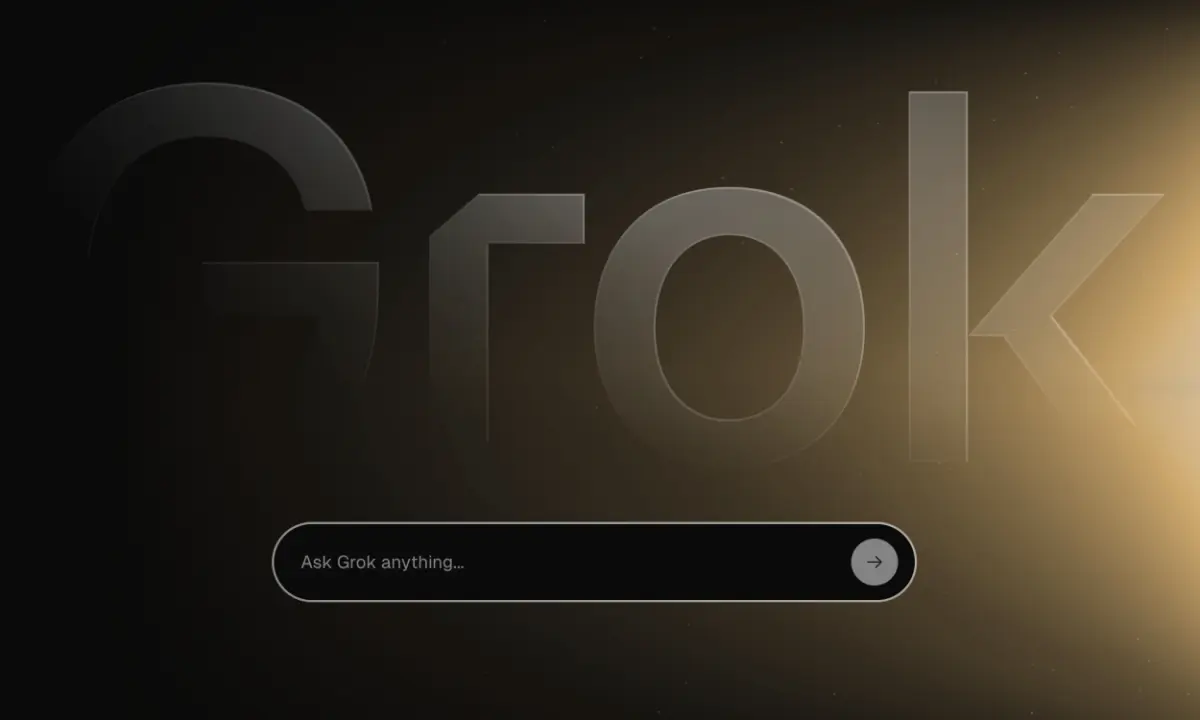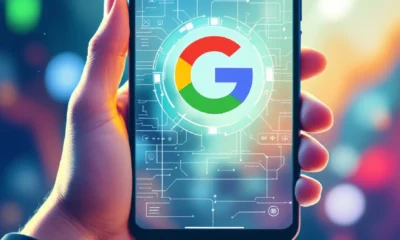News, Ethics & Drama
OpenAI Reportedly Eyes $3 Billion Deal for AI Coding Startup Windsurf

OpenAI is reportedly in discussions to acquire Windsurf, an AI-powered coding assistant startup, for a hefty price tag of around $3 billion, according to sources familiar with the talks. This move signals OpenAI’s potential strategy to bolster its capabilities in the rapidly growing field of AI-assisted software development.
Windsurf, which previously operated under the name Codeium, is a direct competitor to other popular AI coding tools like Cursor, as well as AI coding features integrated into platforms from Microsoft (GitHub Copilot), Google, Anthropic, and even OpenAI’s own offerings.
Key highlights of the potential deal include:
- Massive Price Tag: The reported $3 billion figure would make this OpenAI’s largest acquisition by a significant margin, dwarfing previous purchases like Rockset and Multi.
- Competitive Landscape: The acquisition comes amidst fierce competition in the generative AI space, with major players like Google, Anthropic, and xAI continuously releasing new products. OpenAI recently secured a massive $40 billion funding round.
- Strategic Focus: Acquiring a dedicated coding tool like Windsurf could significantly enhance OpenAI’s offerings for developers, a crucial user base for AI models. Windsurf is known as a tool used for “vibe coding”—using AI to quickly generate code.
- Windsurf’s Background: The startup counts prominent VCs like Founders Fund, General Catalyst, Greenoaks, and Kleiner Perkins among its investors and was reportedly raising funds at a near $3 billion valuation earlier this year.
While the talks are ongoing and unconfirmed by the companies, a successful acquisition would underscore OpenAI’s aggressive strategy to maintain its lead by integrating specialized AI tools and potentially consolidating the market for AI developer assistants.
Our Take
Wow, $3 billion for an AI coding assistant? If this OpenAI-Windsurf deal goes through, it’s a huge statement. It shows OpenAI isn’t just building foundational models; they might be looking to buy best-in-class tools that *use* those models, especially in lucrative areas like coding.
But we predict this investment will be a bust – AI models that are used for coding are best because they are vibrant and evolving – and potentially locking them into a coding ecosystem could make them less flexible – I’m calling this one a mistake.
This story was originally featured on CNBC.
News, Ethics & Drama
Fraser Institute Study: History Suggests AI Will Create Jobs, Not Destroy Them

Worried about artificial intelligence leading to mass unemployment? A recent study from the Fraser Institute suggests looking back at history might ease those fears. The Canadian think-tank argues that AI, much like transformative technologies before it (think printing press, steam engine, computers), will ultimately reshape the economy in positive ways, boosting living standards and likely leading to a net *increase* in jobs.
The study, authored by senior fellow Steven Globerman, pushes back against calls for strict AI regulation aimed at protecting workers. It highlights that the adoption of major “General Purpose Technologies” historically unfolds slowly, often over decades. This gradual pace gives businesses and workers crucial time to adapt to the changing landscape.
While AI will undoubtedly reduce demand for certain jobs and skills, the study emphasizes that it will simultaneously fuel the growth of new industries and roles directly linked to AI. These new opportunities will require different skills, complementing the technology rather than being replaced by it.
Globerman concludes that if past technological revolutions are any guide, the overall impact of AI should be an expansion of job opportunities and higher wages, despite the disruption to specific occupations.
Our Take
It’s always interesting to see the “AI will create jobs vs. AI will kill jobs” debate framed historically. The Fraser Institute makes a solid point – big tech shifts often *do* create new kinds of work eventually. It’s easy to focus on the jobs AI might replace, but harder to imagine the ones that don’t even exist yet.
Still, the transition period can be rough for people whose skills become less needed. Saying it’ll likely be okay “in the long run” doesn’t help someone facing displacement *now*. Balancing the potential long-term gains with the real short-term disruption is the tricky part regulators and society need to figure out.
This story was originally featured on Kingsville Times.
Engines & LLMs
Google Makes Gemini AI Assistant Free for Android Users

Google is making a significant push to integrate its Gemini AI directly into the Android experience, announcing that the Gemini app – positioned as an advanced AI assistant – is now free for all compatible Android users. This move essentially offers users an alternative, and potentially a replacement, for the traditional Google Assistant.
Previously, accessing the full capabilities of Gemini often required specific subscriptions or was limited in scope. Now, by downloading the dedicated Gemini app or opting in through Google Assistant, users can leverage Gemini’s conversational AI power for a wide range of tasks directly on their phones, at no extra cost.
What Does This Mean for Android Users?
Bringing Gemini to the forefront on Android allows users to tap into more sophisticated AI features. This includes tasks like generating text, summarizing information, brainstorming ideas, creating images (on supported devices), and getting help with context from their screen content. It represents a shift towards a more powerful, generative AI-driven assistant experience compared to the more command-focused Google Assistant.
Users can typically activate Gemini using the same methods previously used for Google Assistant, such as long-pressing the power button or using the “Hey Google” voice command (after enabling Gemini).
Google’s Strategy: AI Everywhere
Making Gemini freely available on Android is a clear strategic move by Google to embed its AI deeply within its mobile ecosystem. It aims to get users accustomed to Gemini’s capabilities, driving adoption and competing directly with other AI assistants and integrations, particularly Apple’s Siri and potential future advancements.
While Google Assistant isn’t disappearing entirely (it still handles some core smart home and routine functions better for now), this push positions Gemini as the future of AI assistance on Android devices.
Our Take
So Google’s basically putting Gemini front-and-center on Android for free now. This feels like them saying, “Okay, AI is the future, let’s get everyone using *our* AI assistant.” It makes sense – get users hooked on Gemini’s smarter features instead of just sticking with the old Google Assistant.
It’s a big play to keep Android competitive, especially with whatever Apple’s cooking up with Siri. Making it free removes the barrier, aiming for mass adoption. While the classic Assistant might still handle some stuff better for now, it’s pretty clear Google sees Gemini as the main event going forward on mobile.
This story was originally featured on Digital Trends.
News, Ethics & Drama
Grok Gets a Memory: xAI Chatbot Remembers Past Conversations

Get ready for more personalized chats with Grok! Elon Musk’s xAI is rolling out a new “Memory” feature for its AI chatbot, aiming to make interactions smoother and more context-aware. This move brings Grok’s capabilities closer to competitors like OpenAI’s ChatGPT, which introduced a similar memory function earlier.
The core idea behind Grok Memory is simple: the chatbot will now remember details and preferences from your previous conversations. This allows Grok to build upon past interactions, avoiding the need for users to constantly repeat information or context. For example, if you’ve previously mentioned your coding preferences or dietary restrictions, Grok should recall these details in future chats.
How Grok Memory Works
According to xAI, the feature is designed to improve the helpfulness and flow of conversations over time. As you chat more with Grok, its memory will evolve, tailoring responses more specifically to your needs and history. This could lead to more efficient problem-solving, better recommendations, and a generally less repetitive user experience.
Importantly, xAI emphasizes user control over this feature. Users will reportedly be able to view what Grok remembers, delete specific memories, or turn the entire Memory feature off if they prefer not to use it. This addresses potential privacy concerns often associated with AI systems retaining user data.
Catching Up in the AI Race
The introduction of Memory positions Grok more competitively against other leading AI chatbots. Remembering context is becoming a standard expectation for sophisticated AI assistants, and this update helps xAI keep pace. The feature is reportedly rolling out gradually to Grok users.
Our Take
So Grok is finally getting a memory, letting it remember stuff from past chats. Makes sense – it’s kinda table stakes now if you want to compete with ChatGPT. No one likes repeating themselves to an AI, so this should make using Grok feel less like starting from scratch every single time.
Giving users control to see, delete, or turn off the memory is definitely the right call, hitting those privacy concerns head-on. Still, it shows how crucial personalization (and the data that fuels it) is becoming in the AI chatbot game. It’s all about making these tools feel less like generic bots and more like assistants that actually know you.
This story was originally featured on Beebom.
-

 Prompted Pixels2 weeks ago
Prompted Pixels2 weeks agoCute Severance Action Figures
-

 News, Ethics & Drama2 weeks ago
News, Ethics & Drama2 weeks agoSo, Why’s OpenAI Suddenly Sharing? It’s Not Just About the Competition
-

 News, Ethics & Drama2 weeks ago
News, Ethics & Drama2 weeks agoGemini 2.5 Pro Goes Free: Google’s AI Game-Changer Unleashed
-

 News, Ethics & Drama2 weeks ago
News, Ethics & Drama2 weeks agoElon Musk’s xAI Acquires X: The Future of AI and Social Media Collide
-

 News, Ethics & Drama2 weeks ago
News, Ethics & Drama2 weeks agoSurveys Say Students Are Hooked on AI, But Learning’s Taking a Hit
-

 News, Ethics & Drama2 months ago
News, Ethics & Drama2 months agoOpenAI Unveils GPT-4.5: A Focus on Conversational Nuance
-

 Writing2 weeks ago
Writing2 weeks agoSudowrite Review (2025): Can It Match Human Writing?
-

 Video Vibes2 weeks ago
Video Vibes2 weeks agoSurreal Cityscape – SORA Video by Jesse Koivukoski
























